 When Science and Politics Col ide
When Science and Politics Col ide  When Science and Politics Col ide The Public Interest at Risk Robert O. Schneider Copyright 2018 by Robert O. Schneider All rights reserved. No part of this publication may be reproduced, stored in a retrieval system, or transmitted, in any form or by any means, electronic, mechanical, photocopying, recording, or otherwise, except for the inclusion of brief quotations in a review, without prior permission in writing from the publisher. Library of Congress Cataloging-in-Publication Data Names: Schneider, Robert O., author. Schneider. Schneider.
When Science and Politics Col ide The Public Interest at Risk Robert O. Schneider Copyright 2018 by Robert O. Schneider All rights reserved. No part of this publication may be reproduced, stored in a retrieval system, or transmitted, in any form or by any means, electronic, mechanical, photocopying, recording, or otherwise, except for the inclusion of brief quotations in a review, without prior permission in writing from the publisher. Library of Congress Cataloging-in-Publication Data Names: Schneider, Robert O., author. Schneider. Schneider.
Description: Santa Barbara, California : Praeger, An Imprint of ABC-CLIO, LLC, 2018. | Includes bibliographical references and index. Identifiers: LCCN 2018000408 (print) | LCCN 2018005513 (ebook) | ISBN 9781440859380 (ebook) | ISBN 9781440859373 (set : alk. paper) Subjects: LCSH: SciencePolitical aspectsUnited States. | Science and stateUnited States. Classification: LCC Q175.52.U5 (ebook) | LCC Q175.52.U5 S285 2018 (print) | DDC 320.6dc23 LC record available at https://lccn.loc.gov/2018000408 ISBN: 978-1-4408-5937-3 (print) 978-1-4408-5938-0 (ebook) 22 21 20 19 18 1 2 3 4 5 This book is also available as an eBook.
Praeger An Imprint of ABC-CLIO, LLC ABC-CLIO, LLC 130 Cremona Drive, P.O. Box 1911 Santa Barbara, California 93116-1911 www.abc-clio.com This book is printed on acid-free paper Manufactured in the United States of America Contents Introduction When do science and politics collide? The short answer is, almost always. The reasons for this are many. Science and politics are very differ ent things, and scientists and politicians are animated by very different motivations. We all live in a world where it has become more important than ever to make intelligent decisions driven by the properties of the physical universe. But the relationship between science and politics is, as we shall see, a troubled one.
The ways that science and politics interact with each other in the policy-making dialogue often do not serve the pub lic interest, and in some cases they actually result in great harm. This is a problem that requires considerable effort to understand, and until we really understand it, we will not solve it. Scientific advice to policy makers has featured prominently in Ameri can history. But the mixing of politics and science can be a bit like mixing acid and sulfides. The results are often and regrettably toxic. Policy mak ers have, as we have all no doubt observed during the course of our own lifetimes, become ever more dependent on expert scientific advice as they navigate the most complex issues in a technological ageut it is also true that scientific knowledge and expertise have never been able to command unquestioned authority and public trust.
In part, this is due to the selec tive application of science and its expert advice by policy makers. The political actors often view science as something they can use when they find it supportive of the specific goals or purposes they wish to advance. At the same time, where scientific knowledge or expertise is at odds with the preferences of policy makers, it is often very quickly deep-sixed or When Science and Politics Col ide delegitimized in the (increasingly, I believe) fact-free zone of partisan political discourst is also true that science and its conclusions often run contrary to the majority of public opinion and, as such, seem undem ocratic or unaccountable to the public and its expressed preferences or beliefs. In either case, the formula for politically explosive conflict is all too easily mixed. To all this may be added the reluctance of scientists to see what they do as having any connection to the political world or, per haps more precisely, their insistence that they are totally separate from that world and wish to remain so. The experience of J.
Robert Oppenheimer is perhaps a prime example of the inherently uneasy relationship between science and politics. Despite what some regarded as questionable political associations in his past, his expertise as a physicist and his ability to contribute to a project of great national importance during World War II led to his being named director of the Manhattan Project at Los Alamos. Beginning in 1943, Oppenheimer directed nearly 6,000 scientific and military employees in the effort to develop the atomic bomb. His genius and leadership and his knowledge about the potential of atomic energy were beyond question. But when that genius and knowledge led him to believe that the United States needed to be open minded and to be a force for promoting interna tional responsibility with respect to atomic power, he was less well regarded by the policy elite. After the war, Oppenheimer was appointed chairperson of the newly created United States Atomic Energy Commis sion.
From that distinguished position, he began to lobby for interna tional control of nuclear power and to advocate efforts to prevent nuclear proliferation. He opposed the building of the hydrogen bomb. In fact, he opposed a nuclear-arms race with the Soviet Union. This provoked the ire of politicians and led to the revocation of his security clearance and an end to his effective influence with policy makers It could be argued that it was Oppenheimers political views that were the problem. Both the scientist and the politician would undoubtedly agree with this argument. In other words, it was not his scientific views or his expertise that earned him disfavor.
It was the policy he advocated or the political views that deviated from those of the policy elites. One can imagine that both the scientist and the politician might agree that appear ing to advocate a political point of view was not his job as a scientist. Yet even purely scientific views may be resisted for political reasons. What are we to say, for example, when scientific expertise reaches peer-reviewed scientific conclusions that come into conflict with the political or policy preferences of the policy makers? Is the scientific view to be expressed only when it leads to a conclusion that is politically satisfactory to the Science and Politics policy maker? Is the political or policy recommendation to be dismissed as mere ideology and the science supporting it to be considered partisan? And is the scientist to be forever banned or given to self-censorship when legitimate scientific knowledge may provide a foundation for raising pol icy and value questions? Consider that bomb manufacturing served the governments goals and purposes in the postwar world as a new conflict, the Cold War, was born. Might policy makers who disregarded the experts (physicists and other world-class scientists) who questioned those pur poses or suggested different purposes have been reckless in their avoid ance of important information or analysis? These are vexing questions. The most vexing of questions may be those that move the conversation in one of two directions.
First is the inevitable problem of scientists appearing to engage in policy advocacy, a role not deemed appropriate for them in many professional and political circles. This may lead to the inev itable rejection of the science because the policy being advocated is not popular with policy makers or the public. Second, there is the equally vexing problem of squaring science with a politics that often insists on the validity of scientific viewpoints that are inconsistent with rigorously reviewed and well-accepted scientific conclusions. There are many more such vexing questions in the relationship between science and politics. Perhaps the place to begin sorting things out is by asking and attempting to answer two very basic questions: What is science? What is politics? As we all undoubtedly know, they are two very different things. Though they sometimes participate in the same discussion of important issues of pub lic concern, they do not speak the same language or serve the same pur poses.
Next page

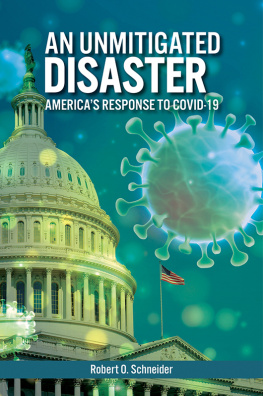
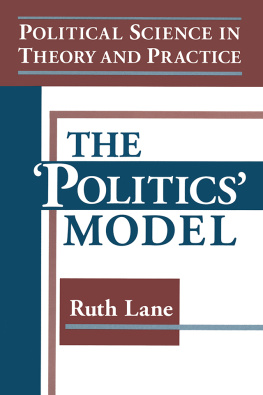

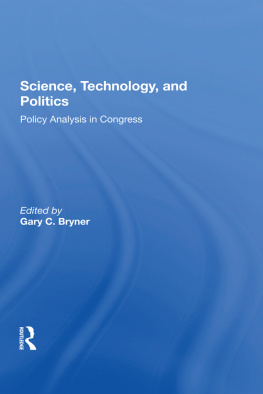
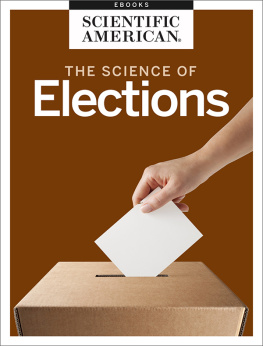
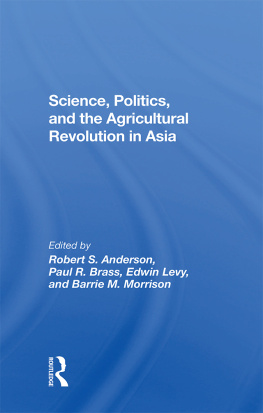

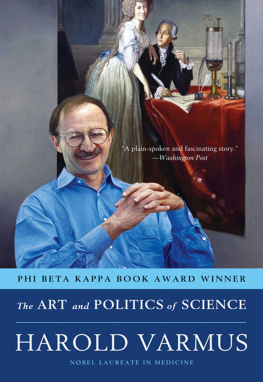
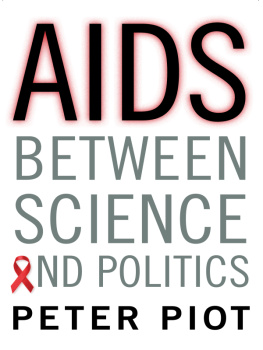

 When Science and Politics Col ide
When Science and Politics Col ide  When Science and Politics Col ide The Public Interest at Risk Robert O. Schneider Copyright 2018 by Robert O. Schneider All rights reserved. No part of this publication may be reproduced, stored in a retrieval system, or transmitted, in any form or by any means, electronic, mechanical, photocopying, recording, or otherwise, except for the inclusion of brief quotations in a review, without prior permission in writing from the publisher. Library of Congress Cataloging-in-Publication Data Names: Schneider, Robert O., author. Schneider. Schneider.
When Science and Politics Col ide The Public Interest at Risk Robert O. Schneider Copyright 2018 by Robert O. Schneider All rights reserved. No part of this publication may be reproduced, stored in a retrieval system, or transmitted, in any form or by any means, electronic, mechanical, photocopying, recording, or otherwise, except for the inclusion of brief quotations in a review, without prior permission in writing from the publisher. Library of Congress Cataloging-in-Publication Data Names: Schneider, Robert O., author. Schneider. Schneider.